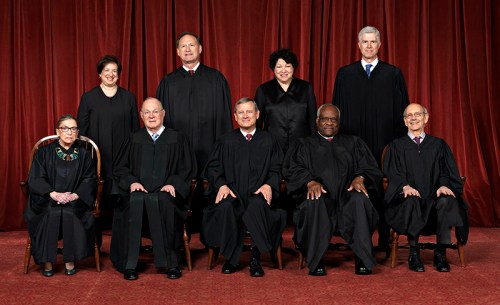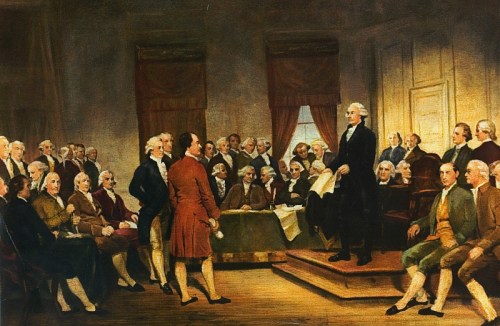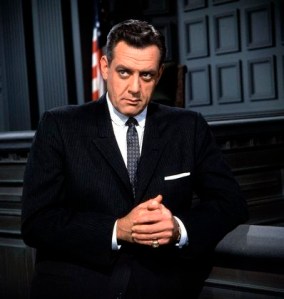
Dylann Roof, the white supremacist sentenced to death after killing nine black church members as an attempt to start a race war, asked a court to replace his appointed appellate lawyers because they “are my political and biological enemies.” The Richmond, Virginia-based 4th U.S. Circuit Court of Appeals denied his request.
Roof’s pro se motion stated that his lawyers, Alexandra Yates and Sapna Mirchandani, “are Jewish and Indian, respectively. It is therefore quite literally impossible that they and I could have the same interests relating to my case.” Roof had difficulties on the same basis with his court-appointed lawyer, David Bruck, during his trial. The murderer wrote in his motion that Bruck is Jewish and “his ethnicity was a constant source of conflict even with my constant efforts to look past it.”
I have been shocked at the reaction of the legal profession, the news media and the public to the 4th Circuit’s ruling. It really does appear that all the education in the world, ethics rules, principles and the Constitution will still be steamrolled by hate and emotion, even when crucial, indeed existential values for our society are at stake. My trust and respect for all professions—all of them—have been grievously reduced by their conduct and ethics blindness over that past several months. No wonder the First Amendment is under attack. No wonder our institutions are being weakened to the point of collapse.
The public literally not understand the principle I am going to explain now. Apparently naively, I thought lawyers, judges and law professors did. In the interest of clarity, I am going to do this in short, straightforward segments.
I. The Court’s ruling is not just wrong, but frighteningly wrong.
Roof, like all citizens accused of a crime, has a right to a competent, zealous legal defense. A competent, zealous legal defense requires that the defendant be able to participate fully in that defense. If a defendant does not or cannot trust his lawyers, he cannot be assured of a competent, zealous legal defense.
II. A client has to trust his lawyer.
It doesn’t matter why a client doesn’t trust his lawyer, and the lawyer need not agree that the lack of trust is warranted. The question is whether a lawyer who is not trusted by his client can do an adequate job representing him. The answer is no. The Sixth Amendment, which guarantees a fair trial and legal representation in criminal cases, is not there for the lawyers, or courts, or government. It exits to protect the accused—all accused.
In a famous medical ethics case, an elderly Korean man in a hospital wanted his doctors, specialists in his malady, replaced because they were Japanese-Americans, and as a survivor of the horrors Japan inflicted on Korea, he was convinced that they would kill him. The hospital ethics committee held that he was an irrational bigot, and that he either had to accept the qualified physicians despite their race, or get out. The AMA disagreed. It said that the patient’s welfare is paramount in medical ethics, and a patient who does not trust his doctors—the reason doesn’t matter—will have his welfare and health endangered as a result.
The same principle should apply to Roof. A client who does not trust his lawyer will not, for example, be candid with him, or trust him to keep confidences.
Under the circumstances Roof described, the lawyers have an ethical obligation to withdraw. Two rules are involved:
Client-Lawyer Relationship
Rule 1.7 Conflict Of Interest: Current Clients
(a) Except as provided in paragraph (b), a lawyer shall not represent a client if the representation involves a concurrent conflict of interest. A concurrent conflict of interest exists if:
(1) the representation of one client will be directly adverse to another client; or
(2) there is a significant risk that the representation of one or more clients will be materially limited by the lawyer’s responsibilities to another client, a former client or a third person or by a personal interest of the lawyer.
(b) Notwithstanding the existence of a concurrent conflict of interest under paragraph (a), a lawyer may represent a client if:
(1) the lawyer reasonably believes that the lawyer will be able to provide competent and diligent representation to each affected client;
(2) the representation is not prohibited by law;
(3) the representation does not involve the assertion of a claim by one client against another client represented by the lawyer in the same litigation or other proceeding before a tribunal; and
(4) each affected client gives informed consent, confirmed in writing. Continue reading →








